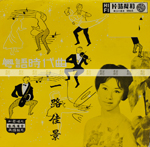In the time when Wong Jum-sum grew up, Cantonese pop music was but one of many kinds of music broadcast on radio. In a society where over 80% of the population spoke Cantonese, that came as a major surprise. Wong has a simple explanation for this. Cantonese pop grew out of traditional Cantonese music, but it could not build on the popularity of the latter in the face of severe competition. Compared to Western or Mandarin pop, it lagged behind in the areas of composition, lyrics, singing, accompaniment, recording, distribution, and marketing. Its competitors had a head start in talents, organization, and technology that took Cantonese pop more than a decade to come close.
Not everyone agrees with Wong’s diagnosis. Other scholars argue Canto pop, even in such early days, had a unique vibrancy that came from a healthy disregard of the boundaries among different traditions and genres, be they local or foreign. Early Canto pop laid a solid foundation for modern Canto pop, which went on to dominate not only Hong Kong but most Chinese communities around the world.
The story of Cantonese pop awaits careful re-writing.


作曲:Eldo Di Lazzaro
作詞:胡文森
主唱:鄭君綿、鄧寄塵、李寶瑩
鄭:有你答應供書教學
嘻哈哈歡天喜地
李:有你答應供書教學
心中歡快樂何如
鄧:讀書會教你識字
研究學術日新奇
鄭:智識增加更增學問共機智
李:人人要學識字
鄧:人人要學禮儀
合:勤學有可恃
我有技能 你有技能 佢有技能
處世更易
李:人人博學多藝
鄧:何愁無發達之時
合:勤學更專志
我有技能 你有技能 佢有技能
易謀生計
李:迎人快活春日
鄭:人人正讀書時
合:無限喜氣
我去學堂 你去學堂 佢去學堂
分班結隊
合:同學快活相聚
聯群上學之時 求學要專志
快去莫遲 快去莫遲 快去莫遲
共同一致
























